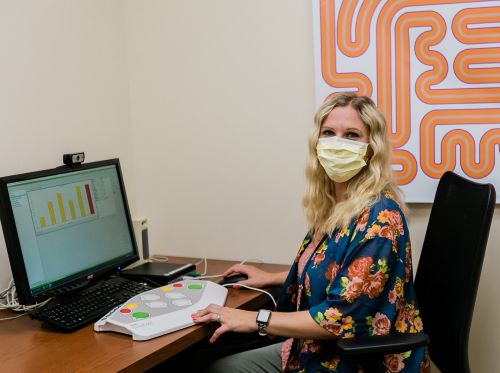We are living in an extraordinary time in healthcare innovation. Disease can be detected earlier, with more sensitivity and better data— improving patients’ lives more than we could have imagined.
One of those innovations is called the Montreal Cognitive Assessment (MoCA), recognized as a superior cognitive screening test for Alzheimer’s and other disorders. Recently, RiverView Health Occupational Therapist Tina Safranski completed training to become certified in MoCA.
MoCA represents a breakthrough in the early, accurate detection of cognitive disorders that afflict millions of people each year. The most sensitive test available, MoCA can detect Alzheimer’s disease up to two years earlier than other tests, as well as 20 other disorders such as stroke, diabetes, high blood pressure, heart disease, sleep apnea, and kidney disease.
Statistics show that about 25 percent of the population at age 75 suffers from Alzheimer’s disease or related dementia. With earlier, more accurate detection, treatment can start sooner to improve the patient’s quality of life significantly, shared Safranski, who is also the Occupational Therapy coordinator at RiverView.
MoCA quickly assesses a patient’s cognitive abilities with 30 questions that analyze more areas of function than any other test. According to Safranski, MoCA assesses various cognitive domains, including attention and concentration, executive functions, memory, language, visuoconstructional skills, conceptual thinking, calculations, and orientation.
Once MoCA has been applied to detect the disorder, cognitive therapy can begin. Cognitive therapy focuses on present thinking, behavior, and communication rather than on past experiences and is oriented toward problem-solving. Cognitive therapy has been applied to a variety of problems, including depression, anxiety, panic, fears, eating disorders, substance abuse, and personality problems.
“I have seen cognitive therapy help patients not only become more confident in their everyday roles as a parent, spouse, or even in the work setting but also with their demeanor and mood changes,’’ Safranski reported. “Patients have been able to improve their focus and attention to those most important daily tasks in their lives that they were struggling with prior.’’
As part of cognitive therapy, Safranski has patients use a computer-based program called RehaCom to help recover cognitive abilities. RehaCom is an engaging, game-like program to help patients having difficulty with specific aspects of attention, concentration, memory, perception, activities of daily living, executive functioning, and visual field.
RehaCom fulfills the treatment needs of patients with traumatic brain injury, stroke, Multiple Sclerosis, schizophrenia, and other cognitive functional disorders by automatically adapting to the user’s performance in engaging and uplifting ways.
Safranski said she has seen an increase in the need for cognitive therapy recently, including post-concussion syndrome and traumatic brain injury due to motor vehicle accidents.
If you or someone you know could benefit from cognitive therapy, talk to your primary care provider regarding an occupational therapy referral or call Rehab Services for more information at 281-9463.





